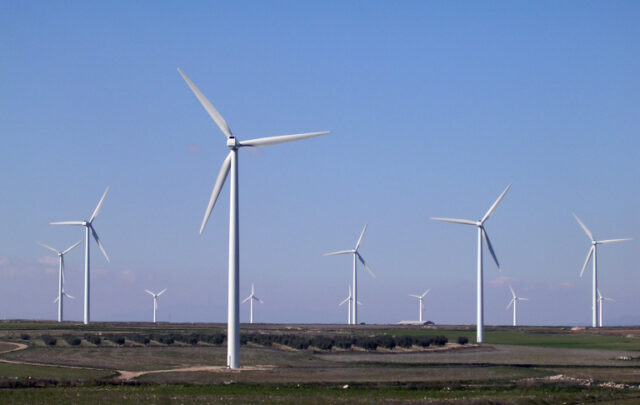Foreign Secretary Jack Straw warned that Britain’s growing need for energy over the next decades has to be seen in a “changing context” due to declining production from the North Sea.
“By 2020, we will probably be importing three-quarters of our primary energy needs — and we will need to adapt to that,” he warned when launching his government’s first-ever International Energy Strategy.
Straw’s warning comes after the British Foreign Office identified energy security as being one of eight international priorities last December. The concern is that the country is no longer self-sufficient with oil and gas supplies from the UK’s sector of the North Sea running out fast.
The situation was underlined in July, when Britain recorded its first deficit in oil trade since 1991. The worry over gas was exemplified by the closure of the North Sea’s Frigg field on October 26 after one time supplying up to a third of the UK’s domestic gas needs.
The UK’s oil production has been in decline since production peaked at 2.8 mm bpd in 1999. Although the current output of 2.1 mm bpd is in line with the average of the past 20 years, it is predicted it could run dry within the next decade. According to the UK Offshore Operators` Association, the country will cease to be self-sufficient in 2007, production will drop to 1 mm bpd by 2010 and virtually end altogether five years later.
Of even greater concern is the situation of natural gas, where the UK is rapidly moving from a position from being a net exporter to a net importer. By 2010, it is expected to be importing around 50 % of its gas. Like the rest of the EU, the dependency is expected to rise to 70 % by 2020.
In June, a parliamentary report expressed alarm about the delay in building up an infrastructure for imported supplies. It questioned whether the UK gas market had the ability to cover demand if there was severe weather over the next two or three winters.
“Transco (responsible for the national grid) has the physical capacity to transport a high-surge demand for gas, but pipelines bringing gas into the UK have little spare capacity,” chairman of the EU sub-committee for Internal Market, Lord Woolmer warned. This was despite concluding that globally there were ample supplies of gas from diverse sources, which would be available to the EU and UK up to 2025 and probably beyond.
As part of the UK’s International Energy Strategy, Straw announced that he would be tasking British ambassadors “in priority posts overseas” to take personal charge of implementing and delivering its objectives.
“We will be developing with them individual Country Action Plans on energy and climate change. And we will be enhancing our posts` capacity on energy issues and making better use of our network of energy attaches,” he said, underlining the importance being attached to the security of supplies.
The energy time bomb also has important implications for Britain’s economy. Since North Sea production started in the late 1970s, oil has lubricated the economy with billions in tax revenues. Even during the decline since 2000, tax revenues have been worth some $ 900 mm, the equivalent to reducing income tax by some 10 %.
The bonanza earned by record increase of 65 % in oil prices this year could be one of the last and will leave the Treasury with a big hole to fill in the country’s budget. The plight is not helped with Britain’s huge trade deficit, which grew last year to a record $ 85 bn.
Britain’s oil industry, which still directly employs 260,000 people, is already being consigned to the history books by the rapid withdrawal of international oil majors. Companies such as BP and Shell have been retreating from the North Sea for the last couple of years and plunging their investments elsewhere. Yet the offshore industry remains optimistic that many smaller specialist operators can continue to extract oil from mature fields.
It is estimated that 30 bn barrels of oil have been pumped from Britain’s oil reserves and that a further 30 bn remain to be exploited. But continued extraction will depend on costly technological developments such as horizontal drilling and water or gas injection that require oil prices to remain high. Like Houston in the US, Aberdeen is the UK’s oil capital but few have doubts that its days are numbered.
Source: IRNA





